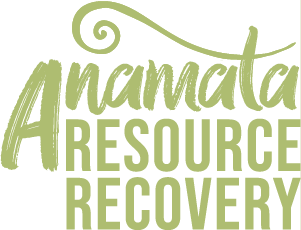Living Lightly Featuring Sarah Harrison
Introducing Sarah, the phenomenally talented, inspiring and resourceful Queen of Reusing. Sarah resides in Tryphena and owns and runs Shoal Bay Pottery.
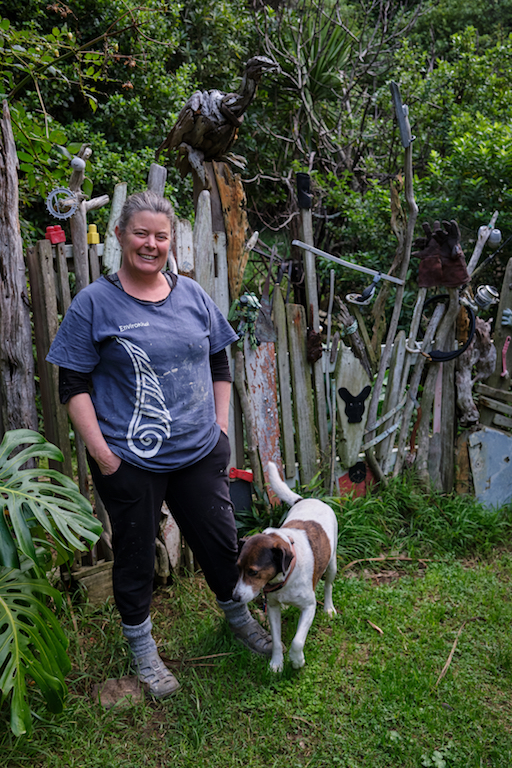

How long have you lived on Aotea? 1971, born and raised.
Dad bought in 1962 and I’ve been off and on the island all my life.
When and how did your zero / minimum waste journey begin?
When I try to pinpoint where my journey began, it’s a long and winding path, it certainly takes me back to my earliest years. Growing up on Barrier, there was no popping down
to the shop to buy things on a whim, we didn’t know how lucky we were! You made do with what was around you and adapted things to suit your needs. It made you more resourceful.
Tell us about some of the things you do that help to reduce waste, resource consumption, and sustainable living.
I always take a close look at everything I may be putting in the rubbish. We don’t put anything in that rots, that all goes to the compost, chooks, rabbits or goats. Obviously, nothing that can be recycled or even re-used.
What motivates you about this lifestyle? Why is this important for you, your family and your home – specifically?
Making treasures! And meeting our needs with the rubbish we find and re-use, restore and create with.
I love being practical and being able to fix things around my home with materials at hand that I had the foresight to hang on to, knowing they would be useful one day.
As an artist, over time I have realized that our role is to inspire and encourage people to look at ‘trash’ in a different light and to help keep those conversations around waste minimisation flowing. We are not necessarily going to sort the problem single handedly, but hey, every drop in the bucket helps to fill it eventually!
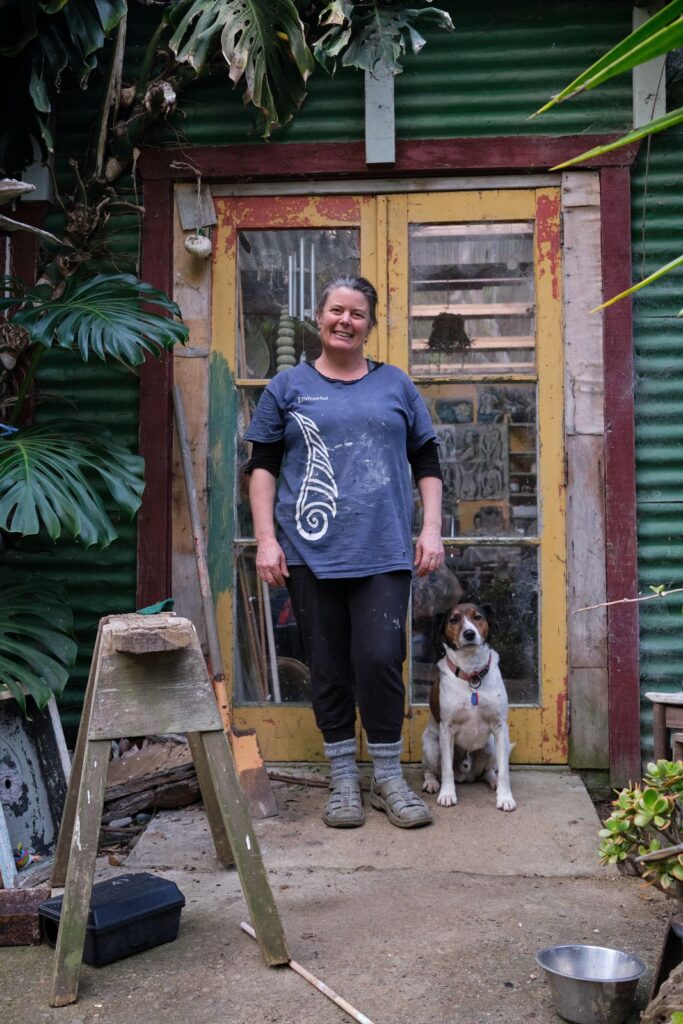
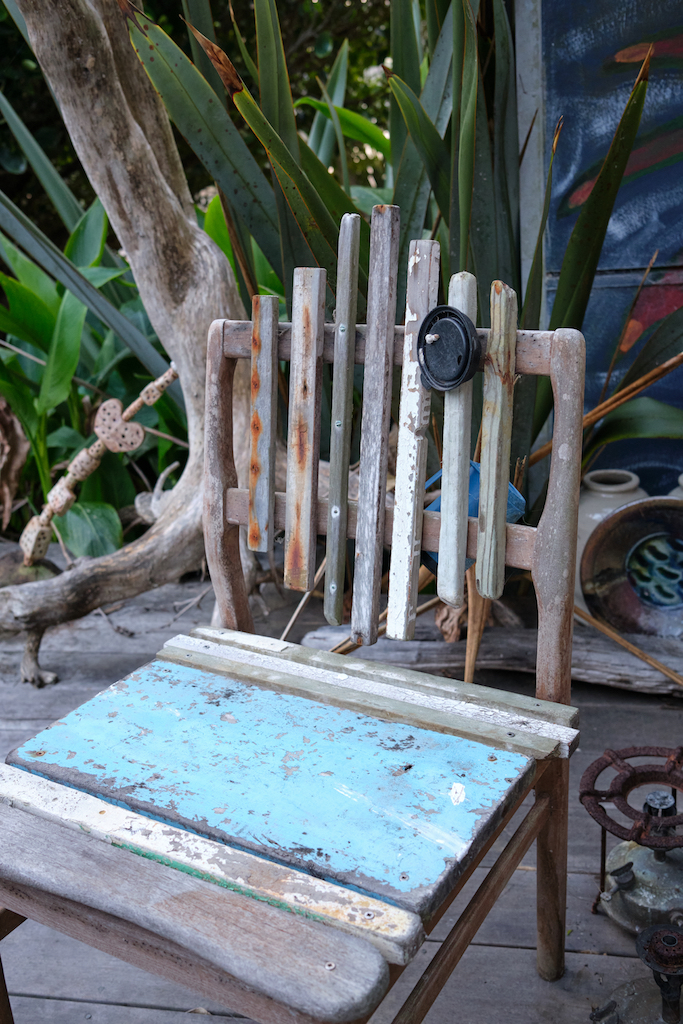
Food waste is a large contributor to our wastecycle island and country-wide. What is your policy / best practice to minimize food waste?
We compost everything organic and have always had chooks for other scraps and fertilizer. I am a wilding, sporadic gardener, but I don’t always have a lot of time to garden so we support Stonewall and shop locally. I am getting away from the Greenkeeper mentality, it doesn’t have to look perfect, adjust your thinking about what a healthy environment looks like..
I’d love to see plots designated for kids to start their own little gardens and be able to enjoy gardening and growing their own food from early on.
What are some of your best min waste / up-cycling tips?
Obviously, I love to up-cycle. I take daily walks on the beach and collect beach rubbish and driftwood, sort it at home and use it to create art. Form follows function and becomes an aesthetic in itself.
What are you most excited for in regards to the future of min waste on the island?
I am excited by the Community board and our local MP and their goals, missions and the hard work they are putting into this effort.
The landfill is going to close, we need to be prepared for that and it will force change in this arena.
How do you see the influx of people moving here/visiting? How do we get them up to speed?
We need to target accomodation providers with the appropriate messaging for guests and obviously encourage and enable visitors to engage in our recycling and min-waste schemes.
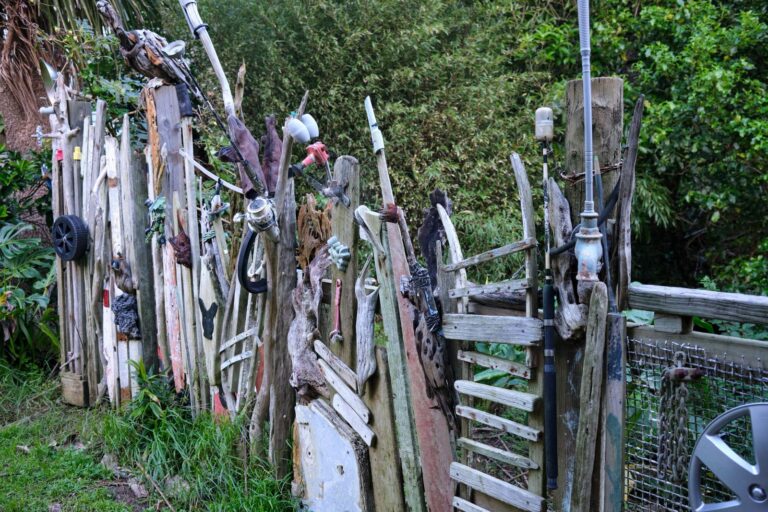
How can people start to incorporate zero / min waste attitudes and habits into their daily life?
The key to it all is at the top of the waste minimisation pyramid – REDUCE. If you don’t bring it in in the first place, you don’t have to get rid of it. For this reason, I am very grateful to proactive, mindful people like the Stonewall store who cut down the island’s waste, thinking about packaging of the products they stock, for example not having any styrofoam, having bulk bins which reduce plastic, etc.
Grab the moments and take the opportunities to change habits; weaving good practices step by step.
What do you hope to see on Aotea over the next 5-10 years?
I think we need to see the community and the emotion of the movement woven together and a shift in the mindset. We need to understand and be aware of the urgency of this issue.
Keep telling the good stories.


How long have you lived on Aotea? 1971, born and raised.
Dad bought in 1962 and I’ve been off and on the island all my life.
When and how did your zero / minimum waste journey begin?
When I try to pinpoint where my journey began, it’s a long and winding path, it certainly takes me back to my earliest years. Growing up on Barrier, there was no popping down
to the shop to buy things on a whim, we didn’t know how lucky we were! You made do with what was around you and adapted things to suit your needs. It made you more resourceful.
Tell us about some of the things you do that help to reduce waste, resource consumption, and sustainable living.
I always take a close look at everything I may be putting in the rubbish. We don’t put anything in that rots, that all goes to the compost, chooks, rabbits or goats. Obviously, nothing that can be recycled or even re-used.
What motivates you about this lifestyle? Why is this important for you, your family and your home – specifically?
Making treasures! And meeting our needs with the rubbish we find and re-use, restore and create with.
I love being practical and being able to fix things around my home with materials at hand that I had the foresight to hang on to, knowing they would be useful one day.
As an artist, over time I have realized that our role is to inspire and encourage people to look at ‘trash’ in a different light and to help keep those conversations around waste minimisation flowing. We are not necessarily going to sort the problem single handedly, but hey, every drop in the bucket helps to fill it eventually!
Food waste is a large contributor to our wastecycle island and country-wide. What is your policy / best practice to minimize food waste?
We compost everything organic and have always had chooks for other scraps and fertilizer. I am a wilding, sporadic gardener, but I don’t always have a lot of time to garden so we support Stonewall and shop locally. I am getting away from the Greenkeeper mentality, it doesn’t have to look perfect, adjust your thinking about what a healthy environment looks like.
I’d love to see plots designated for kids to start their own little gardens and be able to enjoy gardening and growing their own food from early on.
What are some of your best min waste / up-cycling tips?
Obviously, I love to up-cycle. I take daily walks on the beach and collect beach rubbish and driftwood, sort it at home and use it to create art. Form follows function and becomes an aesthetic in itself.
What are you most excited for in regards to the future of min waste on the island?
I am excited by the Community board and our local MP and their goals, missions and the hard work they are putting into this effort.
The landfill is going to close, we need to be prepared for that and it will force change in this arena.
How do you see the influx of people moving here/visiting? How do we get them up to speed?
We need to target accomodation providers with the appropriate messaging for guests and obviously encourage and enable visitors to engage in our recycling and min-waste schemes.
How can people start to incorporate zero / min waste attitudes and habits into their daily life?
The key to it all is at the top of the waste minimisation pyramid – REDUCE. If you don’t bring it in in the first place, you don’t have to get rid of it. For this reason, I am very grateful to proactive, mindful people like the Stonewall store who cut down the island’s waste, thinking about packaging of the products they stock, for example not having any styrofoam, having bulk bins which reduce plastic, etc.
Grab the moments and take the opportunities to change habits; weaving good practices step by step.
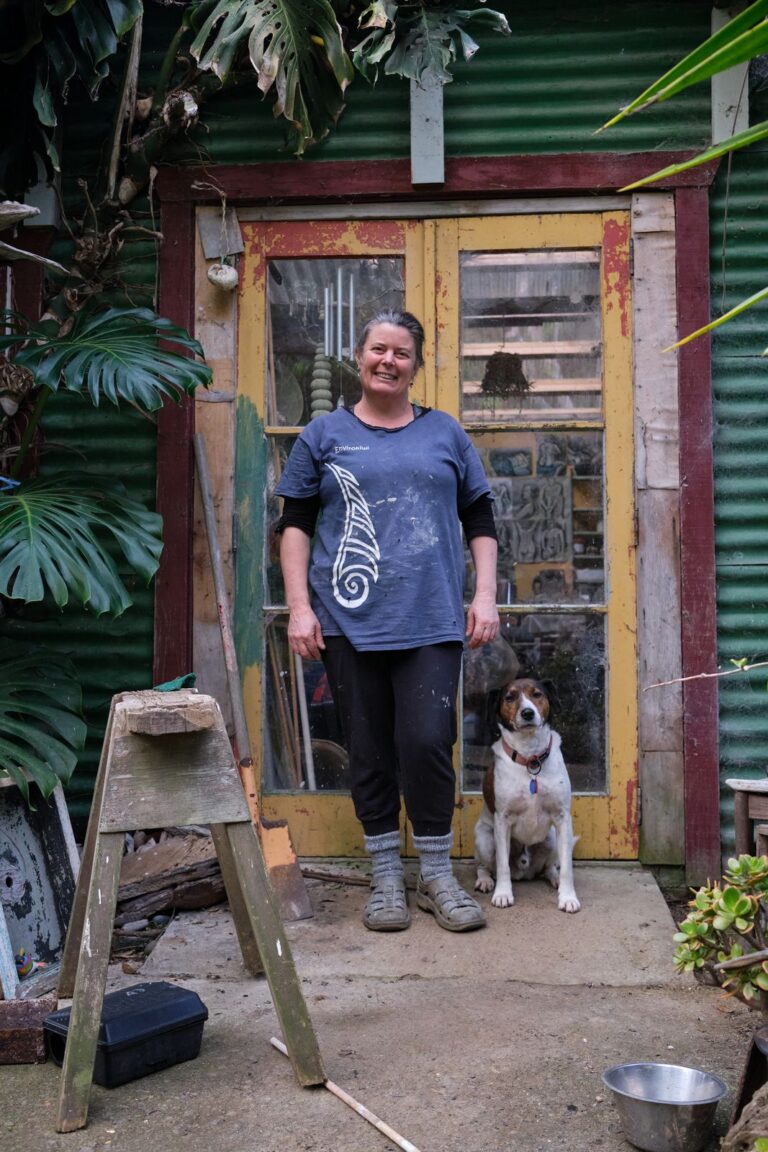


What do you hope to see on Aotea over the next 5-10 years?
I think we need to see the community and the emotion of the movement woven together and a shift in the mindset. We need to understand and be aware of the urgency of this issue.
Keep telling the good stories.

